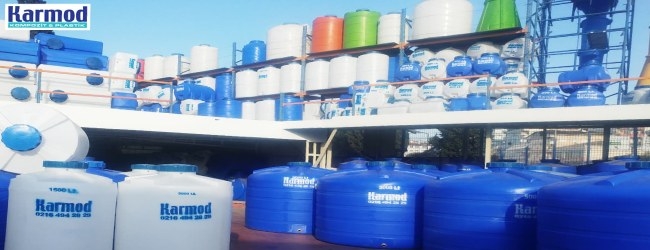
Water tanks are becoming increasingly popular today because of their versatility, finding applications in various settings. Those who use them for industrial raw material transport recommend them to their business partners, while homeowners recommend them to their neighbors. These water tank options have gained more popularity in countries where water is of paramount importance, such as in Africa.
Looking at the big picture, water is essential for all of us. Therefore, we should do our best to preserve this vital resource. Many European and American countries use these tanks in rainwater collection systems because the best way to secure the future of water is to use it efficiently.
Moreover, these tanks can also be used for storing food and chemical mixtures. However, each tank has its unique characteristics, primarily determined by the material used for its production. It's important to note that all our products are guaranteed against manufacturing defects for two years, and damage occurs due to usage can often be repaired at our manufacturing facilities. To understand the features of tanks filled with such advantages, it's essential to look at the characteristics of the raw materials. Here are the general features of tanks based on their raw materials:
Polyethylene Water Tanks
Polyethylene tanks are the lightest among all types of tanks. They also belong to the most economical category. Due to their highly technological production method, they can be manufactured rapidly. These tanks are produced in a monoblock form, meaning they are created as a single piece. While they are colloquially referred to as "plastic," there's no need for hesitation. Polyethylene has international food safety certifications, allowing you to store edible and drinkable contents. The key features of polyethylene tanks include:
- Produced as a single piece.
- Lightweight.
- Internationally recognized as food-grade.
- UV-resistant.
- Resistant to algae formation.
- Among the most cost-effective storage options.
- Available in various colors.
- Thickness increases with size.
- Highly customizable.
- Suitable for a wide temperature range, up to +50 degrees Celsius.
- Available in sizes ranging from 50 liters to 25.000 liters.
- Manufactured in compliance with environmental and management systems.
- Food-grade for both the lid and sleeve.
- Easy to clean.
Polyester Water Tanks
Polyester tanks are commonly used in industrial settings due to their high chemical resistance. While they are primarily made from parts composed of a combination of polyester resin and fiberglass, they can be produced using isophthalic and epoxy-based vinyl ester resin if high chemical resistance is required. Special adhesives are used to bond polyester parts together. The general features of polyester tanks include:
- On-site installation options due to their production method.
- Available in sizes ranging from 200 liters to 100.000 liters.
- Operate at temperatures up to +60 degrees Celsius.
- Easy to transport.
- Resistant to algae and fungal growth.
- High chemical resistance.
- Customizable in various colors.
- UV-stabilized, preventing sun rays from entering.
Stainless Steel Water Tanks
Steel is an incredibly durable material used in various applications today. When it comes to weight, stainless steel water tanks are heavier compared to polyethylene water tank options due to their higher material density. All tanks are mass-based, and this information is available on our website. These tanks are made from AISI 304 steel, produced by combining steel, chrome, and nickel. The steel components are welded together according to the design using argon gas, resulting in tanks that are rust-free and corrosion-resistant. The key features of stainless steel tanks include:
- Rust-free and corrosion-resistant.
- Among the most robust storage options.
- On-site assembly options due to their production method.
- Custom project designs available.
- Available in sizes ranging from 500 liters to 100.000 liters.
- High-temperature resistance, operating at up to +80 degrees Celsius.
- Customizable in various colors.
- Steps are added to tank designs as the volume increases.
- All tanks come with supporting legs.
- Sterile due to no contact with the ground.
- Highly insulating due to material properties, with high UV resistance.
- Suitable for food and pharmaceutical storage.
By sharing information about the raw material properties of all our tanks, we hope to assist you in finding the right tank for your needs. If you still haven't found a tank that suits you and your business model, feel free to visit our website or contact our customer representatives with any questions you may have.


 EN
EN
 DE
DE
 FR
FR
 IT
IT
 ES
ES
 PT
PT
 RU
RU
 AR
AR
 BG
BG
 SR
SR
 GR
GR
 SQ
SQ
 RO
RO
 PL
PL
 HU
HU
 CZ
CZ
 HR
HR
 AZ
AZ
 GE
GE
 AM
AM
 IL
IL